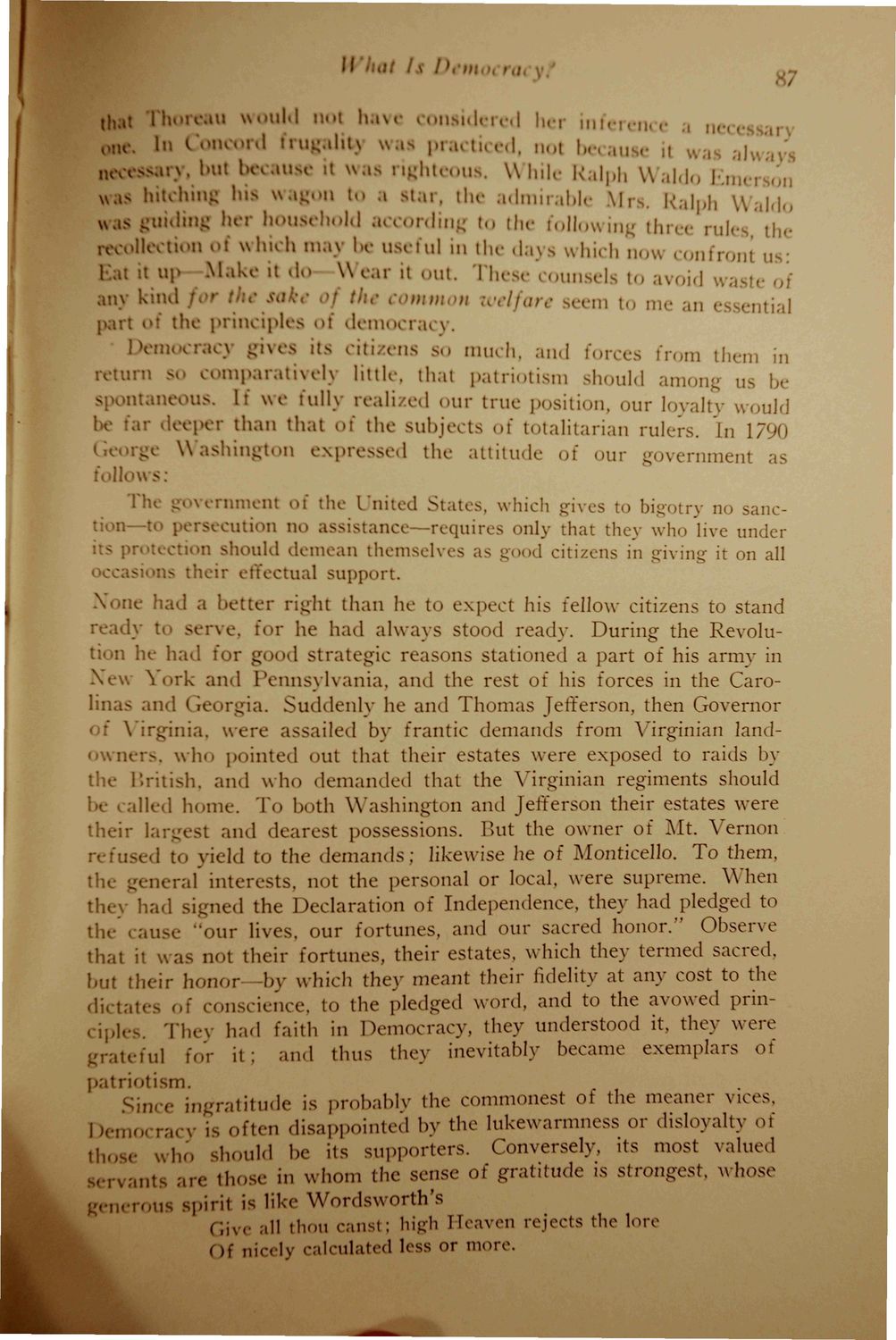| |
| |
Caption: Convocation - 1942 Winter-Spring
This is a reduced-resolution page image for fast online browsing.

EXTRACTED TEXT FROM PAGE:
II I t Ix I ,u1,1 ! 7 that 1 >« > have itlci I her ,,, In -I fru ilit) was pra< i no! I> :l ,uv« because was right .us. While R \\ id | . : w.^ Ins vv;i -ii a Btai the admirable M Ralph was •n- r housel I.I a< Hi to the llowii thi tl ;! •II' vhich ma) I ul in tl days whicl ,n >nt i la : 1 ' ' V\ n out. 'I'h. oun to avoid w •"• i ifm • m to II: :ii • | pai tin- p nciples f .1. j. IVn ve « its cil .us . much, and foi s from them in urn s < mpar ivel) littl thai patriotism should amon is be us. 1 we fully reali 1 our true position, our loyalty v uld e v than that of the subj< ts of totalitarian ml. . In 179 I < G< rg« W shington expr< I the attitude of our rnment as foil Th< ven if the Uni : ites, which gn s to bi no sanc; : i— rs n no assi inc. -requir only that they wh. live under i pr • sh iuld demean themseh - as 1 citizens in iving it n all - ns their J support. Kon< h; i better r j u than he to expect his fellow citizens to stand rea< servi r he had always stood ready. During the Revolution he had r 1 strat no reasons stationed a part of his army in W rk and Pennsylvania, and the rest of his forces in the Carolinas and < > . Suddenly he and Thomas Jefferson, then Governor Virgin were assail. 1 by frantic demands from Virginian landn< -. whi pointed out that their estates were exposed to raids by tl- 1 ish, and who demanded that the Virginian regiments should I all me. I i both Washington and Jefferson their estates were th lai I and dearest possessions. But the owner of Mt. Vernon r I t yield to the demands: likewise he of Monticello. To them. I interests, not the personal or local, were supreme. When th had si 1 the Declaration of Independence, they had pledged to Ui aus >ur live our fortunes, and our sacred honor." Observe ; as not their fortunes, their estates, which they termed sacred. 1 t tl ir h<.nor by which they meant their fidelity at any cost to the .II no to the pledged word, and to the avowed prinThey had faith in Democracy, they understood it, they were iteful for it: and thus they inevitably became exemplars ot patrio! m Since ingratitude is probably the commonest ot the meaner vices, l, ( . ni 0 ften disappointed by the lukewarmness or disloyalty of |„. i t s supporters. Conversely, its most valued w| houW in whom the sense of gratitude is strongest, whose e n nts ;in ^ • •„• spirit is like Wordsworth's . ;p ,11 thou cansl: high 1 leaven rejects the lore . > ,, elj lalculal I less or more. f
| |